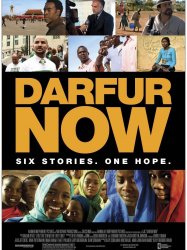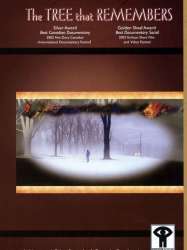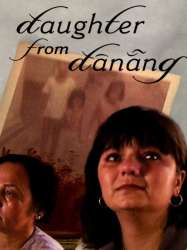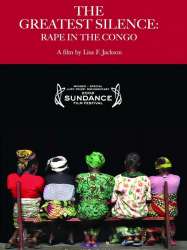No Man's Land is a British film of genre Documentary
No Man's Land (2013)

If you like this film, let us know!
- Infos
- Casting
- Technical infos
- Photos
- Videos
- Film quotes
- Characters
- Music
- Awards
No Man's Land (Danish title: Ingemandsland) is a 2013 British documentary film by Michael Graversen that focuses on Center Jægerspris, a facility in Denmark that houses unaccompanied minors who have entered Denmark seeking asylum, mainly from conflict zones such as Afghanistan, Iran and Ethiopia.
The asylum process in Denmark may take years to reach a verdict. In the meantime, the residents of the Jægerspris center live in a kind of limbo, leading to tension and stress for residents and staff alike. No Man's Land follows the events over several days in which several residents receive notice that their asylum applications have been rejected.
The film was shown on Danish television with the title For ung til udvisning [Too Young for Deportation].
^ "No Man's Land, documentary 2013". Michael Graversen. Retrieved 2013-12-11.
Comments
Leave comment :
Suggestions of similar film to No Man's Land
There are 8959 with the same cinematographic genres, 3242 films with the same themes (including 52 films with the same 3 themes than No Man's Land), to have finally 70 suggestions of similar films.If you liked No Man's Land, you will probably like those similar films :

Darfur Now (2007)
, 1h38Directed by Ted Braun
Origin USA
Genres Documentary, Crime
Themes Films set in Africa, Films about immigration, Documentary films about law, Documentary films about war, Documentary films about historical events, Documentaire sur une personnalité, Documentary films about politics, Political films
Actors Don Cheadle, George Clooney, Arnold Schwarzenegger
Rating66%






Bolinao 52 (2007)
Genres Documentary
Themes Films about immigration, Documentary films about law, Documentaire sur une personnalité
Rating75%






Molly & Mobarak (2004)
, 1h25Genres Documentary
Themes Films about immigration, Seafaring films, Transport films, Documentary films about law, Documentaire sur une personnalité
Rating11%






Yodok Stories (2008)
Genres Documentary
Themes Films about immigration, Documentary films about law, Documentaire sur une personnalité
Rating74%






Parcours de réfugiés (2009)
, 52minutesDirected by Ali Benjelloun
Origin Maroc
Genres Documentary
Themes Films about immigration, Documentary films about law, Documentaire sur une personnalité
Morocco receives many emigrants whose ultimate destination is Europe. About a thousand of these migrants hold a political refugee card from the United Nations High Commissioner for Refugees Agency (UNHCR). However, even those with this card face challenges.

Nicky's Family (2011)
, 1h36Directed by Matej Mináč
Genres Drama, Documentary
Themes Films about immigration, Films about racism, Films about religion, Documentary films about racism, Documentary films about law, Documentary films about war, Documentary films about historical events, Documentaire sur une personnalité, Documentary films about religion, Political films, Films about Jews and Judaism, Documentary films about World War II
Actors Klara Issova
Rating80%





"La famille de Nicky" est l'histoire extraordinaire de Nicholas Winton, surnommé le Schnindler britannique, qui avant le début de la seconde guerre mondiale, entre mars et août 1939, a sauvé 669 enfants tchèques et slovaques, pour la plupart juifs, du génocide nazi. Le film mêle fiction, documents d'archives inédits, et témoignages émouvants des protagonistes de cette histoire, parmi lesquels Nicholas Winton en personne et Joe Schlesinger, journaliste à la CBC et narrateur du film. La "famille" de Nicholas Winton compte aujourd'hui plus de 5 000 personnes dans le monde entier, qui lui doivent la vie.

Yoole, The Sacrifice (2010)
, 1h15Origin Senegal
Genres Documentary
Themes Films about immigration, Documentary films about law, Documentaire sur une personnalité
The albatross smiled from the sky/ These were the last souls sacrificed to the sea / Years later, their bodies reached the shore. A young illegal immigrant writes to his mother. He tells her of the torments he and his friends endured during weeks after they attacked the great blue. They departed from Senegal towards Spain in an open boat with 54 souls aboard, but the boat started to drift towards the American continent. It reached Barbados with only eleven passengers, all dead.

The Tree That Remembers (2002)
, 50minutesOrigin Canada
Genres Documentary
Themes Films about immigration, Documentary films about law, Documentary films about historical events, Documentaire sur une personnalité
Rating74%






Daughter From Danang (2002)
, 1h23Directed by Gail Dolgin
Origin USA
Genres Documentary, Historical
Themes Films about families, Films about immigration, Documentary films about law, Documentary films about war, Documentary films about historical events, Documentaire sur une personnalité, Political films
Rating74%





Heidi's mother, Mai Thi Kim, already had three children and was estranged from her husband Do Huu Vinh, who had left her to fight with the Viet Cong. She was working at an American military base where she met Heidi's father, an American serviceman. When the North Vietnamese army came closer to Danang, Mai Thi Kim feared for Heidi's safety due to rumors of retaliation against mixed-race children. At the age of six, Heidi was sent to United States and placed in an orphanage run by the Holt Adoption Agency.
 , 1h16
, 1h16Origin USA
Genres Documentary
Themes Films set in Africa, Films about immigration, Documentary films about law, Documentary films about war, Documentary films about historical events, Documentaire sur une personnalité
Rating72%





In 2006, producer/director Lisa F. Jackson travelled alone to the war zones of the Democratic Republic of the Congo documenting the plight of women and girls impacted by the conflicts there. She was "afforded privileged access" to the realities of life in Congo, and found "examples of resiliency, resistance, courage and grace". In a 2008 interview with NPR, Jackson said "I knew going to eastern Congo as a white woman alone in the bush with a video camera that I might as well have landed from a spaceship." Jackson had been a victim of gang rape thirty years earlier, and shared this experience with the survivors she interviewed. Much of the film features these women recounting their stories, which have left them "traumatised and isolated - shunned by society and their families, and suffering life-long health effects, including HIV." Context and background are discussed in interviews with doctors, politicians, peacekeepers, activists and priests. Jackson visits a clinic devoted to treating women with traumatic injury due to sexual violence, particularly cases of vesicovaginal and rectovaginal fistula. In addition, Jackson went out into the bush to interview some of the perpetrators, soldiers who spoke without apparent conscience about the women they had raped, and their often bizarre justifications. "You really can say that there's a culture of impunity in the Congo, where none of these men will face arrest for what they've confessed to me on videotape," Jackson noted. The focus of the film, though, is the stories of the victims, "who just poured their hearts out to me with these stories, including over and over again, please take these stories to someone who will make a difference.
 Connection
Connection